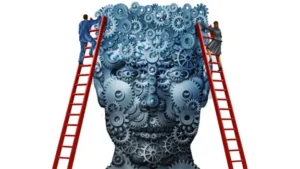In today’s rapidly evolving business environment, leadership development programs for HR professionals are no longer optional—they’re a strategic necessity. These programs help organizations build future-ready leaders capable of driving transformation and maintaining competitive advantage. Yet, for HR leaders, selecting the right LDP can be overwhelming given the vast array of choices, each promising substantial results.
This guide provides a structured approach to evaluating and selecting leadership development programs. With in-depth insights, comparative breakdowns, and actionable strategies, it helps HR professionals make data-driven decisions that align with their organization’s leadership goals.
Core Components of Effective Leadership Development Programs
Understanding the fundamental elements that define robust leadership development programs for HR professionals is key to their successful implementation:
1. Learning Methodologies
Effective leadership programs are built on dynamic knowledge transfer strategies:
- Experiential Learning: Learning through reflection on doing.
- Case-Based Approaches: Real-world problems drive strategic thinking.
- Scenario-Based Learning: Simulated complex challenges develop adaptability.
- Competency-Based Learning: Direct focus on nurturing specific leadership skills.
2. Delivery Formats
Choosing the right format is crucial for optimizing participation and learning:
- In-Person Training: Rich, immersive experience.
- Online Platforms: Highly scalable and accessible.
- Hybrid Models: Combines physical and digital strengths.
- Blended Learning: Integrates several teaching modalities effectively.
For HR leaders designing or selecting leadership development programs for HR professionals, choosing formats that match employee engagement trends and hybrid work cultures is essential.
3. Assessment and Evaluation Tools
Robust assessment frameworks ensure that learning translates into performance:
- 360-Degree Feedback
- Psychometric Assessments
- Leadership Style Inventories
- Competency Assessments
These tools help HR professionals quantify outcomes and justify investment in leadership development programs for HR professionals.
Comparative Analysis of Leadership Development Programs
When evaluating leadership development programs for HR professionals, comparing design, delivery, and effectiveness helps pinpoint the best match for organizational needs.
Program A: Strategic Leadership Initiative
- Format: Scenario-Based Learning, Hybrid
- Strengths: Customizable, organizational relevance
- Ideal For: Companies needing tailored solutions
Program B: Executive Growth Series
- Format: Case Study-Driven, In-Person
- Strengths: Peer interaction, traditional structure
- Ideal For: Organizations valuing classic leadership styles
Program C: Leadership Intensive
- Format: Experiential, Hybrid
- Strengths: Practical exposure, flexible
- Ideal For: Companies tackling complex leadership issues
Program D: Evolve and Lead
- Format: Competency-Based, Online
- Strengths: Measurable growth paths, individual focus
- Ideal For: Firms prioritizing structured, remote-friendly development
Each of these options serves different objectives, highlighting the importance of alignment when implementing leadership development programs for HR professionals.
Strategic Selection Criteria for HR Professionals
To choose the best-fit leadership program, HR leaders should apply strategic filters:
Organizational Alignment
- Match program focus with long-term strategic goals.
- Address leadership pipeline weaknesses.
- Anticipate future capability needs.
Participant-Centric Planning
- Factor in career stages and learning styles.
- Ensure inclusivity and equitable access.
- Design developmental journeys for lasting growth.
Resource Evaluation and ROI
- Measure cost versus impact.
- Track leadership bench strength improvements.
- Demonstrate value through key performance metrics.
These selection principles ensure investments in leadership development programs for HR professionals generate measurable, high-impact outcomes.
Implementation Best Practices
To ensure successful rollouts, HR leaders should:
- Conduct a comprehensive needs assessment.
- Pilot programs before full deployment.
- Regularly evaluate and adapt programs using KPIs and feedback loops.
This agile approach ensures continuous value creation from leadership development programs for HR professionals.
Emerging Trends in Leadership Development
HR teams must stay ahead of the curve by incorporating:
- AI-Powered Coaching
- Microlearning & Bite-Sized Modules
- Diversity and Inclusion Leadership
- Cross-Cultural and Global Leadership Skills
These trends are shaping the future of leadership development programs for HR professionals as they prepare leaders for global, hybrid, and digital-first environments.
Inconclusion, investing in the right leadership development programs for HR professionals is a long-term strategic play. The right program can transform leadership capabilities, drive engagement, and ensure organizational resilience in uncertain times.
Ready to unlock your organization’s leadership potential? Connect with our expert team at hello@workforcegroup.com for a personalized consultation. We specialize in designing strategic, evidence-based leadership development programs for HR professionals tailored to your organization’s needs—empowering your workforce and securing future leadership excellence.




